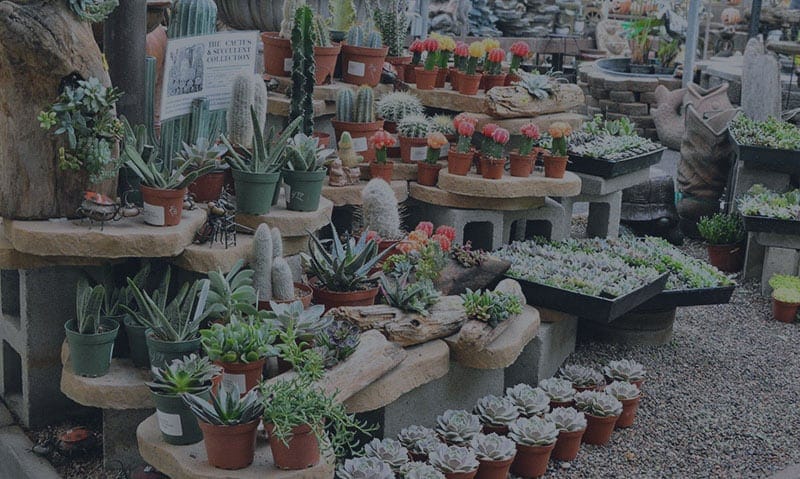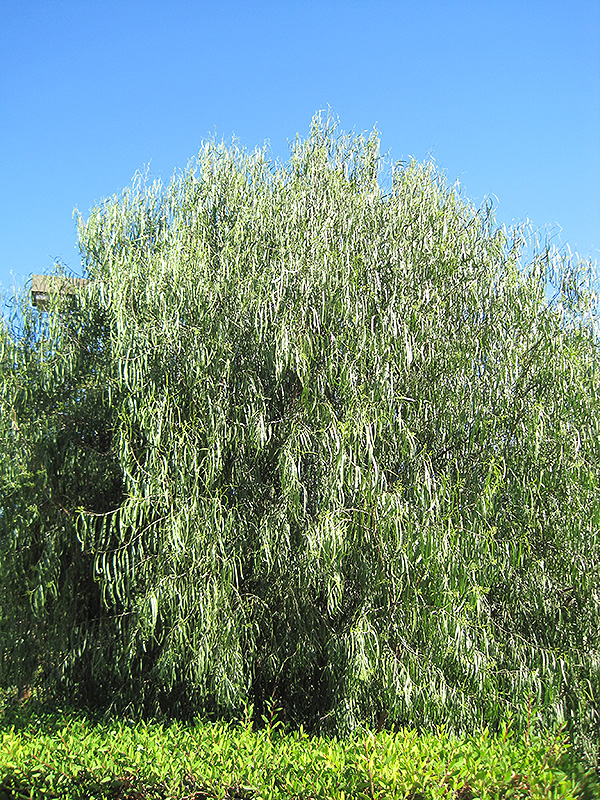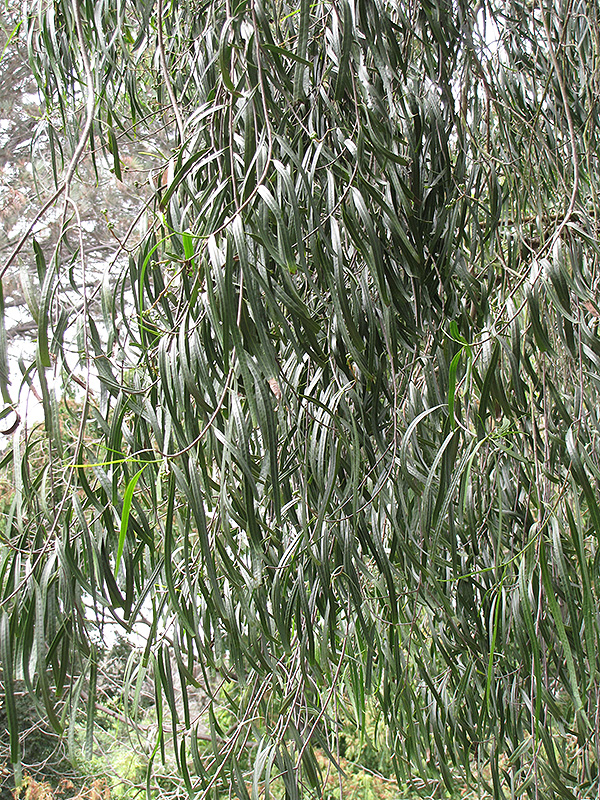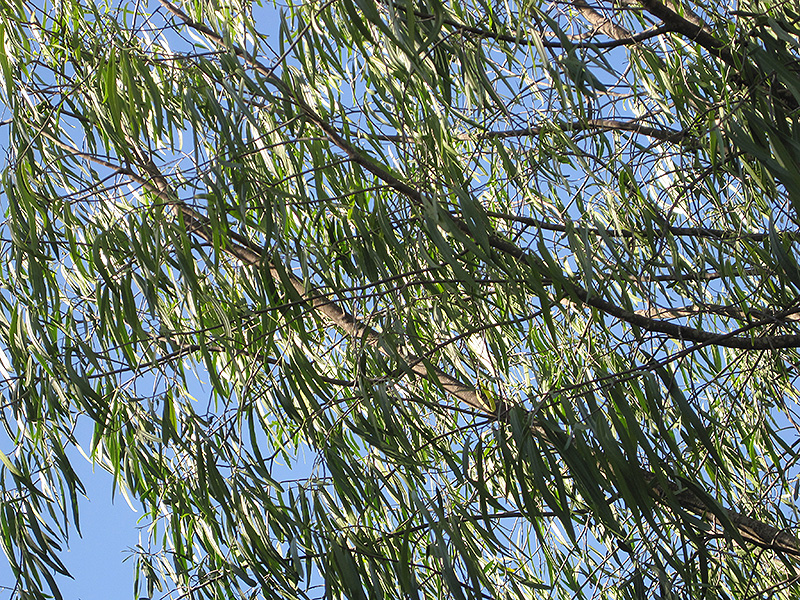Height: 35 feet
Spread: 20 feet
Sunlight:
![]()
![]()
Hardiness Zone: 8b
Other Names: Wilga, Sheepbush
Description:
An attractive evergreen tree, with an upright, oval habit when young, developing pendulous outer branches as it matures; thin, narrow olive green leaves complete the graceful Weeping Willow appearance; a great home landscape accent
Ornamental Features
Australian Willow is primarily valued in the landscape for its highly ornamental weeping form. It has attractive olive green evergreen foliage which emerges light green in spring. The fragrant narrow leaves are highly ornamental and remain olive green throughout the winter. However, the fruit can be messy in the landscape and may require occasional clean-up.
Landscape Attributes
Australian Willow is an evergreen tree with a rounded form and gracefully weeping branches. Its relatively fine texture sets it apart from other landscape plants with less refined foliage.
This tree will require occasional maintenance and upkeep, and can be pruned at anytime. It is a good choice for attracting birds and bees to your yard. It has no significant negative characteristics.
Australian Willow is recommended for the following landscape applications;
- Accent
- Shade
- Windbreaks and Shelterbelts
Planting & Growing
Australian Willow will grow to be about 35 feet tall at maturity, with a spread of 20 feet. It has a low canopy with a typical clearance of 3 feet from the ground, and should not be planted underneath power lines. It grows at a medium rate, and under ideal conditions can be expected to live to a ripe old age of 100 years or more; think of this as a heritage tree for future generations!
This tree does best in full sun to partial shade. It prefers dry to average moisture levels with very well-drained soil, and will often die in standing water. It may require supplemental watering during periods of drought or extended heat. It is not particular as to soil type or pH, and is able to handle environmental salt. It is quite intolerant of urban pollution, therefore inner city or urban streetside plantings are best avoided. This species is not originally from North America.




